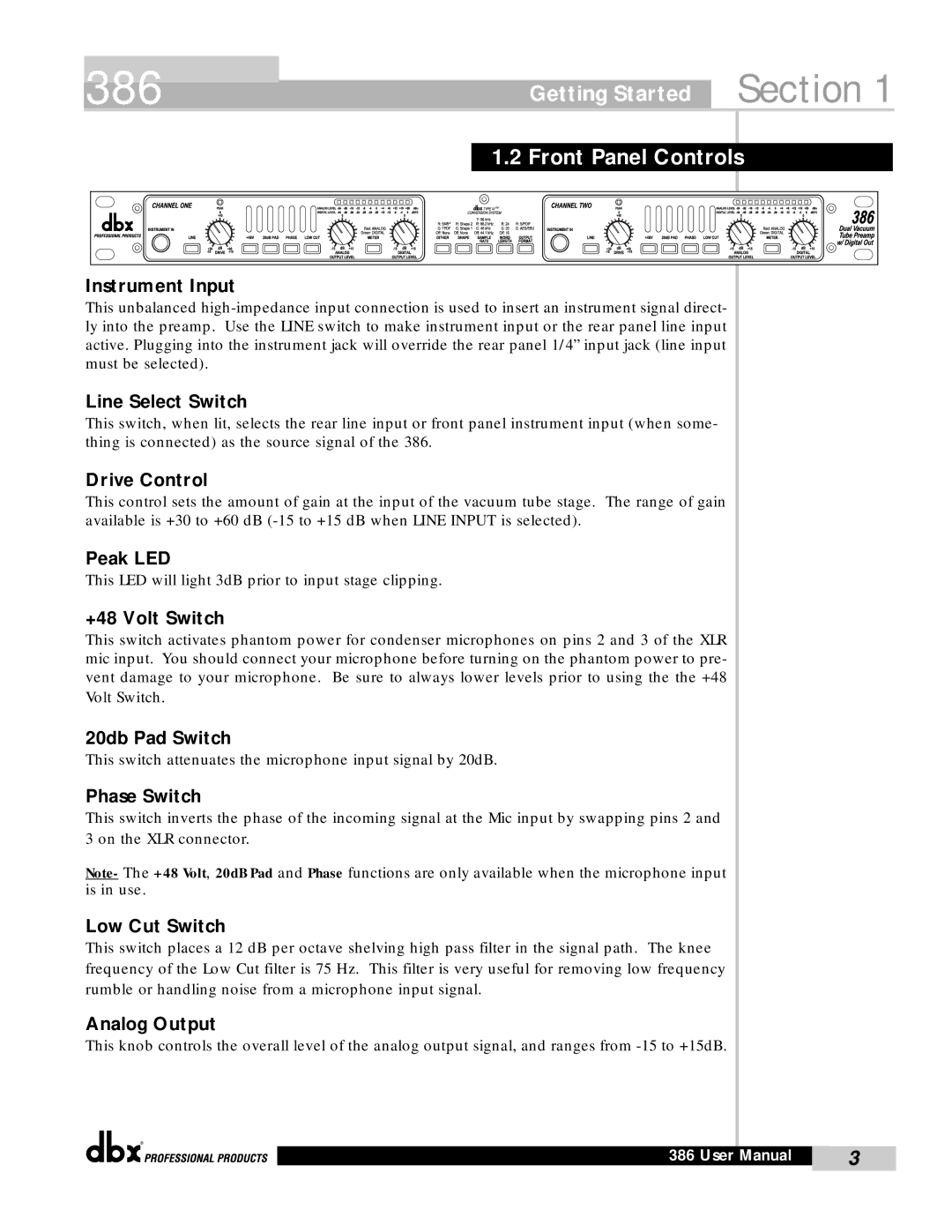
386 | Getting Started | Section 1 | ||||
|
|
|
|
|
|
|
|
| 1.2 Front Panel Controls |
| |||
|
|
|
|
|
|
|
|
|
|
|
|
|
|
Instrument Input
This unbalanced
Line Select Switch
This switch, when lit, selects the rear line input or front panel instrument input (when some- thing is connected) as the source signal of the 386.
Drive Control
This control sets the amount of gain at the input of the vacuum tube stage. The range of gain available is +30 to +60 dB
Peak LED
This LED will light 3dB prior to input stage clipping.
+48 Volt Switch
This switch activates phantom power for condenser microphones on pins 2 and 3 of the XLR mic input. You should connect your microphone before turning on the phantom power to pre- vent damage to your microphone. Be sure to always lower levels prior to using the the +48 Volt Switch.
20db Pad Switch
This switch attenuates the microphone input signal by 20dB.
Phase Switch
This switch inverts the phase of the incoming signal at the Mic input by swapping pins 2 and 3 on the XLR connector.
Note- The +48 Volt, 20dB Pad and Phase functions are only available when the microphone input is in use.
Low Cut Switch
This switch places a 12 dB per octave shelving high pass filter in the signal path. The knee frequency of the Low Cut filter is 75 Hz. This filter is very useful for removing low frequency rumble or handling noise from a microphone input signal.
Analog Output
This knob controls the overall level of the analog output signal, and ranges from
®
386 User Manual | 3 |
|
|
